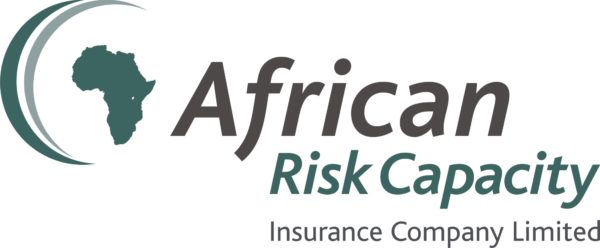The African Risk Capacity (ARC) today announced that it has joined the World Economic Forum (The Forum) towards sharing ideas with other global, independent, impartial and future-oriented leaders keen on improving the state of the world, especially in natural disaster risk reduction and resilience.
Over the past four decades, Sub-Saharan Africa has experienced more than 1,000 disasters often with devastating humanitarian crises. The escalating frequency of these extreme hydro-meteorological events and the challenges posed to Africa’s effort to achieve food security and development goals warranted that the development of a homegrown solution.
In November 2012, African Union (AU) established the African Risk Capacity (ARC) http://www.africanriskcapacity.org/ as a Specialised Agency to respond to the impacts of extreme weather events and natural disasters and serve as a continental disaster risk financing mechanism. ARC was given the mandate to help Member States improve their capacities to better plan, prepare and respond to extreme weather events and natural disasters, for effectively protecting the food security of their vulnerable populations. The initial funding support for ARC came from the Governments of Sweden, United States, Switzerland, Canada, France, The Rockefeller Foundation and The International Fund for Agricultural Development (IFAD).
Subsequently, in 2014, ARC launched its first financial affiliate, the African Risk Capacity Insurance Company Limited (ARC Ltd) through a no-interest 20-year loan by the governments of Germany (KfW/BMZ) and the United Kingdom (DfID). Together ARC Agency and ARC Ltd, comprise the ARC Group, and represents an effective public-private partnership model for natural disaster risk financing and management on the continent. Till date, ARC has paid a total of US $36 million to member countries affected by drought which has directly helped 2.1 million people and over 1 million livestock.
As the international organization leading dialogues for public-private cooperation, the World Economic Forum is uniquely positioned to enable the ARC join other key global stakeholders in useful and mutually benefiting dialogue on climate and natural disaster risk financing and management.
Speaking on the membership, the Director-General, Mohamed Beavogui, explained that the ARC concept is based on the fundamental rationale that responding earlier to a disaster before it develops into a crisis is financially efficient and more economical. “Our early intervention helps to save lives and livelihoods, with every dollar invested with ARC saving nearly four and a half dollars spent after a crisis evolves.”
Development experts on climate and natural disaster risk financing and management agree that such an approach is critical in building resilience of countries and communities. Most critically, it also helps to reduce the reliance of African countries on the international humanitarian system to fund response to disasters on the continent. The ARC model works by linking early warning systems with contingency planning and supported by modern financial mechanisms (specifically insurance). This enables governments to provide targeted responses to disasters in a more timely, cost-effective, objective and transparent manner.
“We are pleased to welcome the African Risk Capacity as a new member of the World Economic Forum….”, said Bertrand Assamoi, the Forum’s Community Lead and Business Engagement Manager for Africa. “The innovative approach of ARC in helping African countries build capacities to better understand and manage natural disaster risks is critical in developing the necessary tools and financing to bridge humanitarian needs within a broader development and resilience framework.”
One of the most meaningful ways to engage with the World Economic Forum, according to WEF official document, is through its System Initiatives. This works towards cultivating a shared vision for change, empowering widespread innovation and action, and enabling mutual accountability that offer a more effective public-private response to complex global challenges.
In the African region, the ‘Grow Africa’ project under ‘The Shaping the Future of Food’ initiative, is mobilising investment through market-based partnerships to advance agricultural transformation and food security in 12 countries.
ARC expects that its membership of the WEF will further strengthen its innovative work to disseminate invaluable data to government decision makers and private sector through its re-insurance partners on the untapped potential of insurance and its application on the continent.
ARC, in partnership with Metabiota, Health Systems Consult Limited, and Columbia University, with support from The Rockefeller Foundation and the Swiss Agency for Development and Cooperation is also pioneering an Outbreak and Epidemic product for mitigating the unpredictable funding that amplifies both the risk and impact of outbreaks on the continent.
# # #
About African Risk Capacity (ARC) ARC consists of ARC Agency and ARC Insurance Company Limited (ARC Ltd). ARC Agency was established in 2012 as a Specialised Agency of the African Union to help Member States improve their capacities to better plan, prepare and respond to weather-related disasters. ARC Ltd is a mutual insurance facility providing risk transfer services to Member States through risk pooling and access to reinsurance markets; it is owned by Member States with active insurance policies as well as KfW Development Bank and the UK Department of International Development (DfiD), as capital contributors.
With the support of the United Kingdom, Germany, Sweden, Switzerland, Canada, France, The Rockefeller Foundation and the United States, ARC assists AU Member States in reducing the risk of loss and damage caused by extreme weather events affecting Africa’s populations by providing, through sovereign disaster risk insurance, targeted responses to natural disasters in a more timely, cost-effective, objective and transparent manner. ARC is now using its expertise to help tackle some of the other greatest threats faced by the continent, including outbreaks and epidemics.



